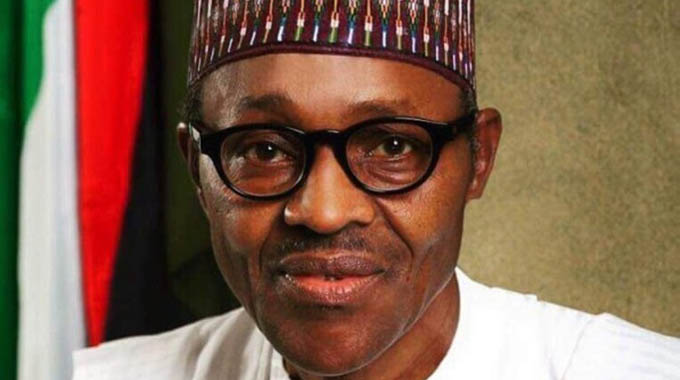UN environment chief criticised by UN over frequent flying

NEW YORK. – The globe-trotting travels of the UN’s environment chief have been sharply criticised in a draft internal audit as “contrary to the ethos of carbon emission reduction”.
Erik Solheim, executive director of UN Environment, was travelling for 529 out of the 668 days audited, spending $488,518 (£370,380), according to the report. The audit also said he had “no regard for abiding by the set regulations and rules” and claimed unjustified expenses.
The development comes amid growing concern among some UN Environment officials, with sources claiming his “haphazard and dictatorial management style” has “already made us dysfunctional in many respects”.
Solheim told the Guardian he had already paid back money for instances of oversight and made changes where other rules had been broken. He said he could not comment in detail on the audit until it was completed and published: “If any other mistakes are found, we will immediately correct them.”
Responding to staff concern over his leadership of the UN Environment Programme (Unep), he said: “To secure unprecedented environmental action, we need to change, as individuals, as society, indeed as the UN. No one is immune to the difficulty that type of systemic change often brings.”
The draft audit, leaked to the Guardian, was compiled by the UN Office of Internal Oversight Services (OIOS) and will be finalised after responses from the individuals named. It is particularly critical of Solheim’s frequent flying, which included a weekend trip from the US to France and back.
“The extensive travel patterns of [Solheim] did not set an example for the rest of the staff to follow,” it said. “In 2011 … the secretary general stated that ‘What we demand of others, we must do ourselves’. Such extensive travel therefore presents a reputation risk to the organization, especially [given] that Unep is supposed to be the lead on sustainable environment matters.”
It also said Unep, unlike several other UN organisations, did not have policies and incentives for staff to reduce their carbon emissions. In August, Solheim told a Norwegian aviation magazine, people should not have a “guilty conscience” about flying and said he held gold frequent flyer cards at all three major airline alliances.
“This is simply embarrassing,” said Truls Gulowsen, head of Greenpeace in Norway. “Solheim has made Unep much more visible, which is a good thing, partly through travels and discussions with so many people. But this report puts him in an extremely bad light and weakens the credibility of UN’s entire environmental organisation.”
Solheim said: “Making good on our global agenda demands engagement with the world and indeed an expanded approach to our work. I am therefore determined to continue to focus on our mandate to create real results for real people, with real impact on the ground.”
The draft OIOS audit also criticises Solheim’s management style as “having no regard for abiding by the set regulations and rules, and correspondence seen showed management willingness to circumvent regulations and rules which were termed as ‘bureaucratic’.”
The audit said Solheim’s travel had been approved by a manager who reported directly to him, not someone more senior. “We have immediately put new procedures in place whereby my travel is approved by the office of the secretary general,” Solheim told the Guardian.
The audit also said Solheim had not provided justification for 76 days spent in Oslo and Paris on official travel. After a request from a UN official to account for days spent in his home country, Norway, Solheim, emailed: “We cannot accept this question on holiday vs job … we are not any longer living in the industrial age and they must stop treating me as if I am a 07 to 16 factory worker … the other side of this coin is that they must stop asking this stupid question.”
Solheim told the Guardian: “It’s true that I have vented frustration with what I perceive as excessive bureaucracy in the UN system. I believe fully in reforming the UN so we’re better able to confront the urgent challenges facing our planet.” But he added: “If administrative rules are found to have been overlooked, I accept personal responsibility and offer my unflinching commitment to refining a process that prevents them from ever occurring again.”
The OIOS report also criticises Solheim for allowing two senior managers to work unofficially from Paris, rather than Unep headquarters in Nairobi. A source said staff saw this arrangement as the managers “getting away with murder”.
In one case, the unofficial teleworking resulted in additional travel costs of $23,750, according to the draft audit. Questioned by officials over the unofficial arrangement in emails seen by the Guardian, Solheim said: “Please blame it on the erratic executive director.”
On another occasion, discussing management reform, Solheim emailed colleagues to say: “There is no need to be the most legalistic implementer of nonsense. Very often it is easier to get forgiveness for non compliance than to get permission for change.”
Numerous Unep staff have contacted the Guardian, on condition of anonymity, criticising Solheim’s leadership of the organisation, which is governed and funded by UN member states.
“He thinks he is a CEO when he is actually an international civil servant,” said one source. “A lot of us were very excited when he came. He’s Norwegian and an ex-environment minister. It was the dream CV that turned into a nightmare.” – The Guardian







Comments